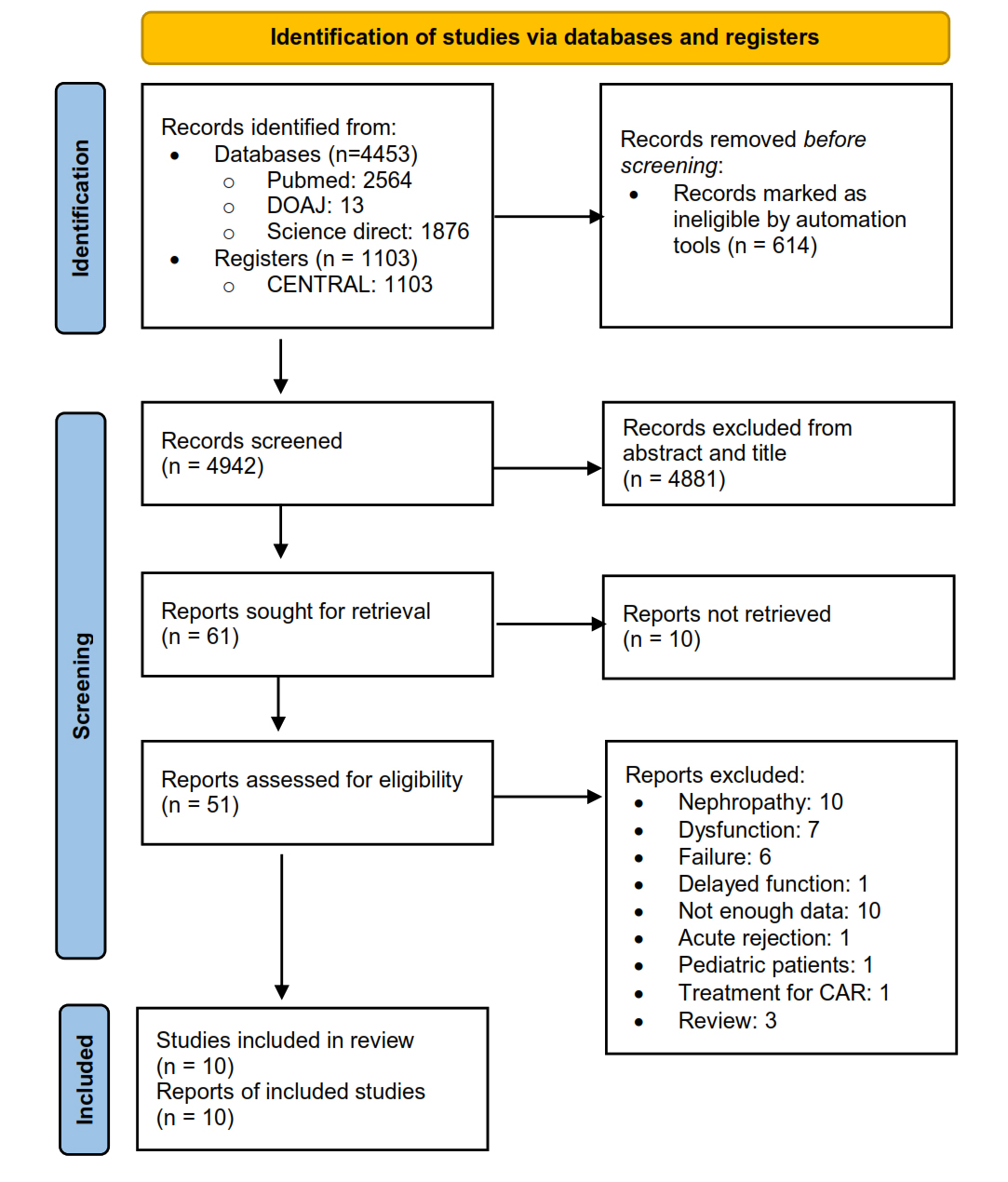Risk factors for chronic allograft rejection after kidney transplantation: a systematic review and meta-analysis
Gede Wira Mahadita1, I Gde Raka Widiana1.
1Division of Nephrology and Hypertension, Department of Internal Medicine, Faculty of Medicine, Udayana University, Denpasar, Indonesia
Introduction: Kidney transplantation has better outcome compared to dialysis patients. With high demand and low supply, it is important to maximize graft longevity. One of risk factors for graft failure is allograft rejection. Chronic allograft rejection occurs months or years after transplantation. Multiple studies have been analyzing risk factors for this entity. Our study aimed to evaluate risk factors for chronic allograft rejection after kidney transplantation.
Method: We systematically searched Pubmed, Directory of Open Access Journal (DOAJ), Cochrane Central Register of Controlled Trials (CENTRAL) and Science Direct on March 8th, 2022.

Result: Total ten studies of 25,774 kidney transplant patients were included in this study. Mean age difference between chronic allograft rejection and non-chronic allograft rejection was -3.41 years (p < 0.00001). Human leucocyte antigen (HLA) was a risk factor. Lower body surface area (BSA) ratio was associated with higher risk. Higher triglyceride and IL-6 was a risk factor. In association with kidney function, worse kidney function (proteinuria, higher creatinine post-transplant and higher urea) was a risk factor. Acute rejection was a risk factor (RR 2.37 [1.91, 2.96]; p < 0.00001; I2=7%; p = 0.30). Low cyclosporin A (CsA) whole blood trough levels post transplantation (< 110 ng/mL) was a risk factor.
Conclusion: Younger recipient age, HLA, lower BSA ratio were risk factors for chronic allograft rejection. Post transplantation, worse kidney function, higher triglyceride, higher IL-6, acute rejection and low CsA whole blood trough levels were risk factors.
The authors would like to thank all authors from the analyzed studies. The authors would also thank all staff of the Division of Nephrology and Hypertension in Department of Internal Medicine in Udayana University Sanglah Hospital, Denpasar, Bali-Indonesia.

right-click to download
